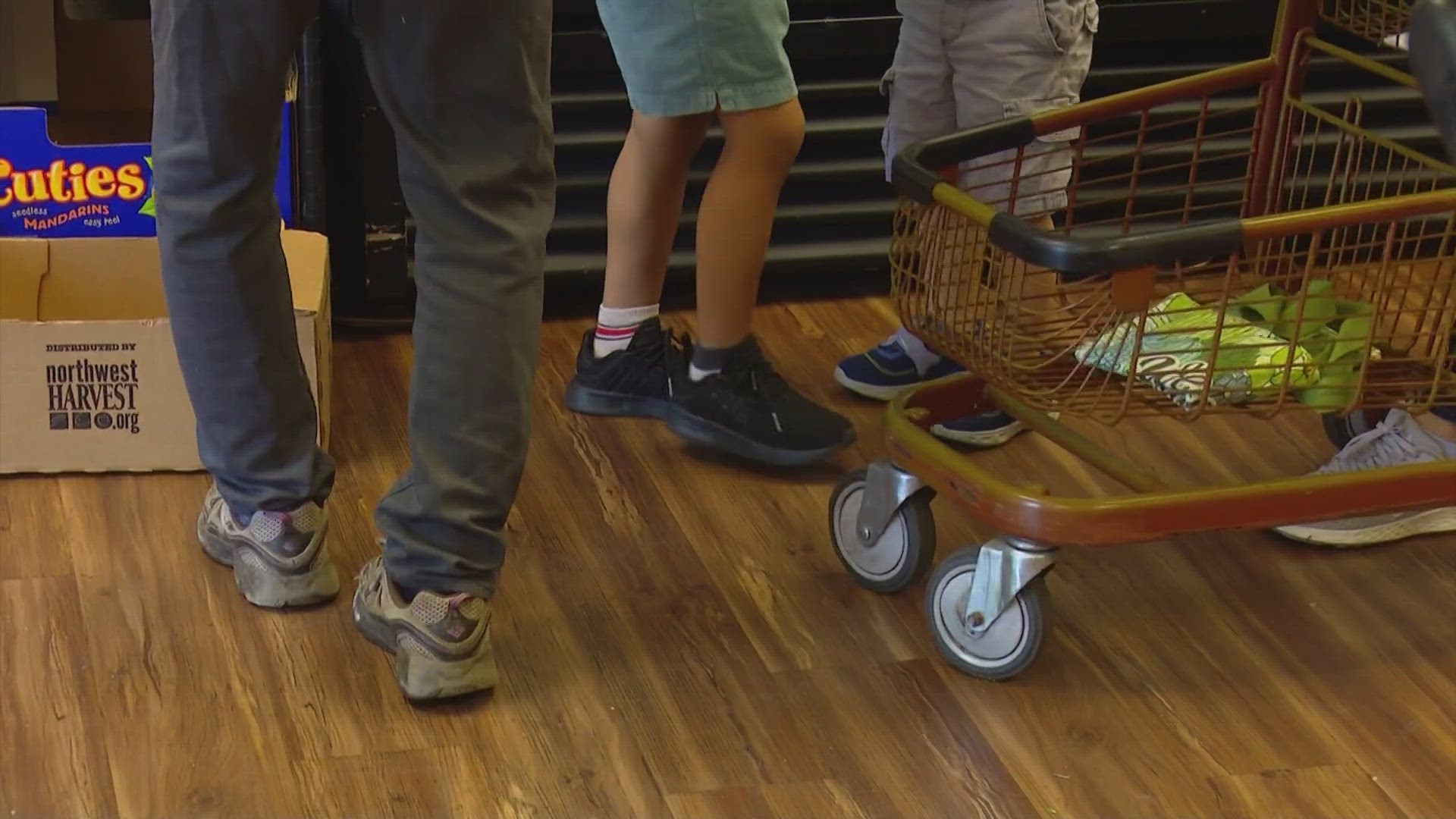SEATTLE — Food banks in the Seattle area are seeing an increased need for assistance in recent months. A new food rescue partnership is now underway aimed at preventing food waste and helping get food to the people who need it.
Back in 2021, White Center Food Bank saw around 100 to 120 families per day. Now they are serving up to 200 families per day, which can be a challenge on their resources.
“With the increased need from the community for food, we need more food, and we need more volunteers, and we need more money,” said Heather Crandall, the volunteer manager for White Center Food Bank.
Crandall said high food costs and pandemic era food benefits coming to an end contribute to the surge
“A lot of families are struggling to make ends meet,” said Crandall.
Each day, volunteers from White Center Food Bank visit Safeway to pick up an assortment of foods, including meats, fresh produce, and ready-to-eat meals.
Safeway launched a new and improved food rescue program this past fall with the help of Seattle Public Utilities to gather and donate unsold and edible food most effectively. Each day, employees from each department gather foods that are one day past their “sell by” date and put them in refrigerators and freezers for volunteers from food pantries to pick up. New posters to help guide employees on what can be donated and designated boxes to put unsold food are two improvements to the program.
“It's just like the food you would have in your refrigerator, where if you buy it the day previous at the grocery store, it's going to be perfectly fine to eat,” Said Sara Osborne, the director of Public and Government Affairs for Safeway’s Northwest Region.
She said that collectively the Safeway stores in Seattle have more than 4 tons of unsold, edible food to donate each week, but not all food banks have enough volunteers to pick up the food, like White Center Food Bank does. They hope food banks get more volunteers to pick up the food, not only to help families get fed, but to prevent waste.
“Food is the number one material found in Seattle’s garbage,” said Liz Fikejs, the senior waste prevention program manager for Seattle Public Utilities.
Fikejs said joint efforts like this with Safeway help people and the environment.
“Preventing food waste in the first place, is one of the number one solutions to avoiding greenhouse gas emissions,” said Fikejs.

